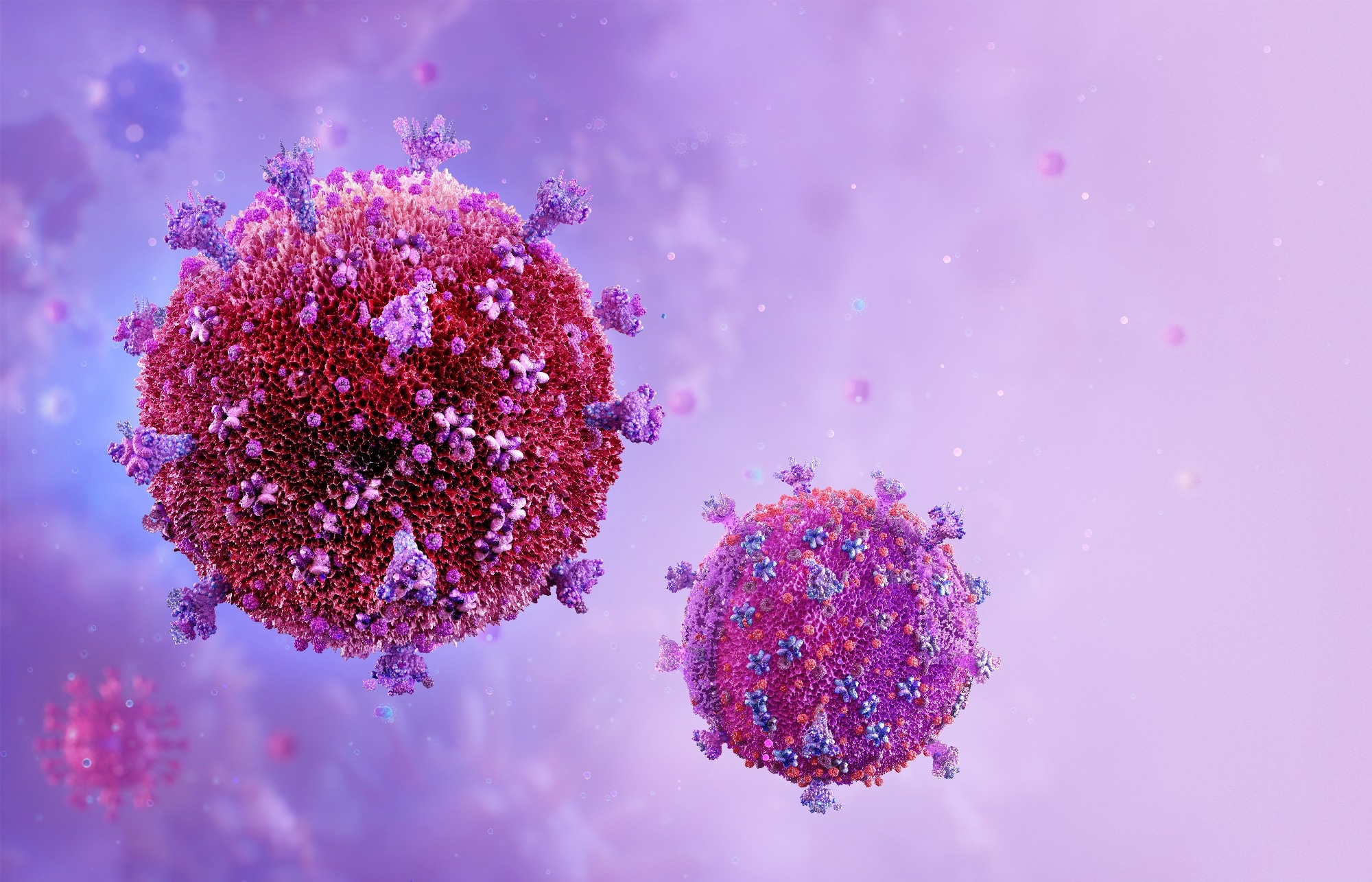Introduction
Where are we with HIV today?
What are the current therapies?
What are the challenges?
Prospects for future treatment
References
Further reading
Human immunodeficiency virus (HIV), the causative viral agent of acquired immunodeficiency syndrome (AIDS), is a devasting and lethal disease that has caused widespread suffering worldwide for almost half a century. We still have no cure for this disease. While those infected can expect to continue treatment throughout their lifetime, in recent times, there have been advancements in therapeutics.
 Image Credit: Corona Borealis Studio/Shutterstock
Image Credit: Corona Borealis Studio/Shutterstock
Where are we with HIV today?
Human immunodeficiency virus (HIV) is the etiological agent that leads to acquired immunodeficiency syndrome (AIDS). Lifelong treatment is required, and there is currently no cure. The HIV virus cannot operate all by itself, so it not only sets up a home with the host cell but also takes advantage by exploiting its resources.
To achieve this feat, the virus must hijack the host's cellular machinery to evade detection by the immune system. HIV integrates its genome within the host chromosomal DNA. The provirus can then remain dormant within the host cell, where it persists for the entire life span of the infected cell. This latent virus can operate silently within the cell; its replication method renders it completely undetectable to the human immune system.
HIV DNA is detectable in CD4+ T cells in the blood and lymphoid tissue in nearly all cases of HIV infection. People with natural resistance to HIV who maintain a viral load of <50 copies/ml without any therapeutic intervention are known as ‘elite’ controllers. Those who exhibit remarkable resistance are called ‘exceptional’ controllers. These individuals have naturally been the focus of intense investigation for many years now for the clues they offer for finding a cure. And hope for such a cure was presented by a case study that involved an infected patient ––widely known as the ‘Berlin patient’ ––who underwent bone marrow transplantation courtesy of a donor who was naturally resistant to the virus.
What are the current therapies?
The introduction of daily combination antiretroviral therapy (cART) led to a significant drop in AIDS-related morbidities and mortality. Even so, a mechanism of HIV persistence today is the proliferation of cells that were infected prior to the introduction of ART. In addition, cART therapy comes with a whole host of problems, including premature aging, drug fatigue, toxicity, and inflammatory effects. These side effects exacerbate the incidence of other diseases, such as cardiovascular disease and chronic obstructive pulmonary disease (COPD).
To block HIV-1 before it finds an opportunity to integrate itself with the host chromosomal DNA, scientists have targeted key proteins involved in the replication cycle: reverse transcriptase (RT), integrase (IN), and protease. These enzymes are crucial in the development of modern-day antiretroviral drugs.
A recent advance in treatment that has proven promising has been the advent of integrase inhibitors. The process by which the virus integrates its genome within the host chromosomal DNA is controlled by an enzyme called integrase. This protein is highly conserved across the Retroviridae family. This means that the targeting of integrase entails the prevention of replication.

 Related: HIV-1 versus HIV-2: What’s the Difference?
Related: HIV-1 versus HIV-2: What’s the Difference?
What are the challenges?
There are remaining knowledge gaps in the campaign against HIV. Challenges to long-acting antiviral therapy involve resistance and understudied populations. The development of drug-resistant mutations has been a barrier to achieving a cure for HIV. Meanwhile, problems with adherence to cART regimens involve adverse drug reactions and limited access to therapy.
For cART patients, medicines that limit the side effects of the therapy, as well as the frequency of dosing, may improve the rate of adherence. Emerging approaches to long-acting antiviral therapies are anticipated to provide novel and simpler options for the prevention and treatment of HIV, thereby providing hope to many sufferers in the future.
 Image Credit: Julia Lazebnaya/Shutterstock
Image Credit: Julia Lazebnaya/Shutterstock
Prospects for future treatment
A complete cure for HIV would entail both remission and eradication. The problems of resistant mutations present an ongoing challenge for scientists in the fight against HIV and complicate treatment regimens which must be continually updated.
The targeting of integrase has been touted as one of the most promising approaches to combating HIV infection. This protein is highly unique. The inhibitors formulated to inhibit integrase are long-acting and have shown exceptional promise in their capacity to block HIV integration and replication. Meanwhile, another technique that holds promise is the in-vivo delivery of gene-editing tools to either target the virus or enhance the immune system or protect cells from becoming infected.
There are opportunities for a collaborative effort and cross-fertilization of concepts from cancer research, for example, by utilizing studies done on immune resistance in the field. The same goes for research into coronavirus disease 2019 (COVID-19), whereby increased knowledge of the mechanisms involved in severe acute respiratory syndrome coronavirus 2 (SARS-CoV-2) viral infection could aid further understanding of HIV.
A final consideration is that at present most of the research into a cure for the virus has been carried out by high-income countries. Here the incidence of infection rates is much lower and tends to be mainly problematic within the remit of the male homosexual population. Bearing this in mind, we need to remain cognizant of the fact HIV strains are genetically and biologically diverse and vary according to sex, ethnicity, and geographical locale.
References
- Cobb, D., et al. (2020) Long-acting approaches for delivery of antiretroviral drugs for prevention and treatment of HIV: a review of recent research. Expert Opinion on Drug Delivery. Doi: 10.1080/17425247.2020.1783233.
- Deeks, S., et al. (2021) Research priorities for an HIV cure: International AIDS Society Global Scientific Strategy. Nat Med. Doi: 10.1038/s41591-021-01590-5.
- Rana, A. et al. (2020) Advances in Long-Acting Agents for the Treatment of HIV Infection. Drugs. Doi: 10.1007/s40265-020-01284-1.
- Trivedi, J., et al. (2020) Recent Advances in the Development of Integrase Inhibitors for HIV Treatment. Curr HIV/AIDS. Doi: 10.1007/s11904-019-00480-3.
Further Reading
Last Updated: Jan 19, 2023